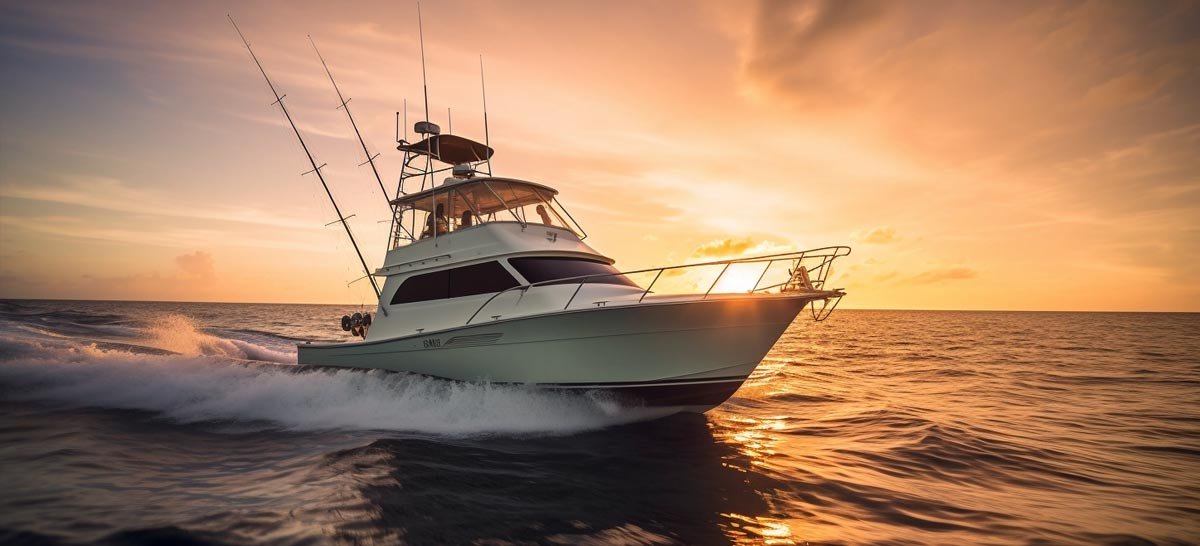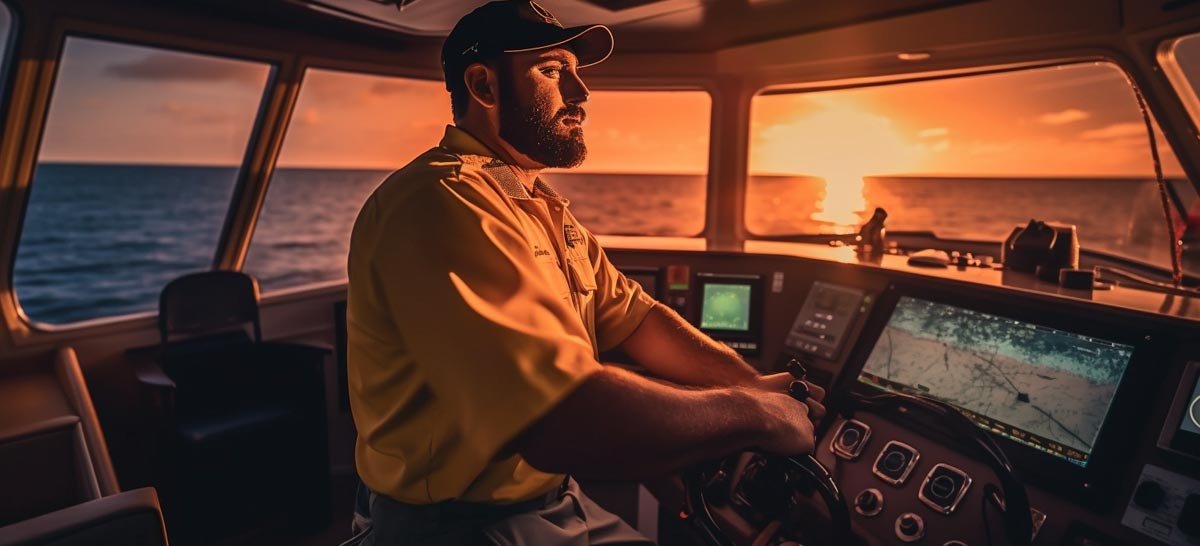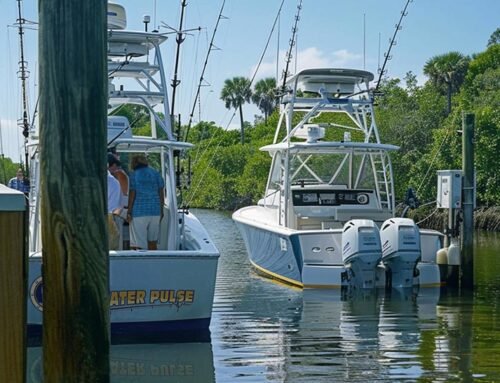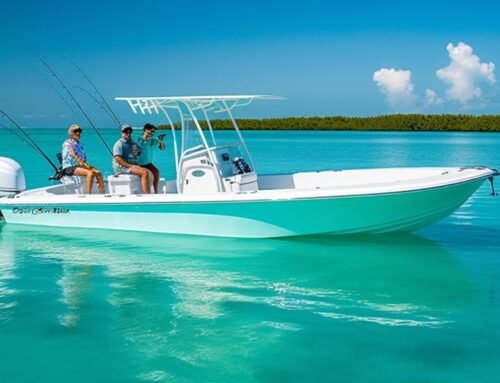In the realm of maritime activities, the position of a boat captain is not only one of great responsibility but also of high prestige. It is a career path that requires dedication, commitment, and a deep understanding of the marine ecosystem. Navigating the vast waters, the captain stands as the utmost authority on board, safeguarding the vessel, its crew, and cargo.
This comprehensive guide aims to provide an all-encompassing view into the world of becoming a boat captain. Through this well-structured article, we will examine the academic prerequisites, the physical and emotional demands of the job, the legal requirements, and the employment opportunities. Furthermore, we will delve into the diverse roles a captain plays, the impact of technology in this field, and the prospects of career growth.
Table of Contents
- Academic Prerequisites
- Physical and Emotional Demands
- Legal Requirements
- Employment Opportunities
- Role of a Boat Captain
- Impact of Technology
- Prospects of Career Growth
- Final Thoughts
- Sources
1. Academic Prerequisites
1.1 Basic Education
Before embarking on the journey to become a boat captain, a strong foundational education is crucial. In most cases, this includes at least a high school diploma or its equivalent. This stage of education provides basic knowledge in mathematics and physics, which are fundamental to navigating and operating a boat. Additionally, proficiency in English is often necessary, as it’s considered the universal language of the sea.
1.2 Maritime Academies
For those serious about pursuing a maritime career, attending a maritime academy can offer unparalleled benefits. These institutions provide comprehensive training in nautical science and marine engineering, preparing students for the realities of life at sea. Coursework generally covers navigation, cargo handling and stowage, ship construction, meteorology, marine communication, and maritime law. These academies also typically offer simulator training and sea service internships to give students practical, hands-on experience. Graduating from a recognized maritime academy provides a strong competitive edge when applying for jobs in the maritime sector.
1.3 Licensing
Possessing a valid license is mandatory for all boat captains and is arguably the most crucial academic prerequisite. The specific type and class of license required depend largely on the size of the vessel you intend to captain and the waters you’ll navigate.
In the U.S, for instance, licenses are granted by the United States Coast Guard (USCG), and the process typically involves a written examination, a physical examination, drug screening, and a thorough review of the applicant’s maritime experience. The basic license, the Operator of Uninspected Passenger Vessels (OUPV), permits the holder to captain vessels of up to 100 gross tons, while a Master License allows the holder to operate inspected vessels that can carry more than six passengers.
1.4 Continual Learning
Becoming a boat captain also involves lifelong learning. The maritime industry is continuously evolving, with new technologies, regulations, and best practices. Therefore, captains must commit to ongoing professional development, often through courses and seminars, to stay current and maintain their license. It’s important to note that many maritime authorities require proof of continual professional development when renewing a captain’s license.
1.5 Specialized Certifications
Depending on the specific role and vessel type, additional certifications may be necessary. These can include, but are not limited to, First Aid and CPR certification, firefighting certification, Radar Observer certification, and the Standards of Training, Certification and Watchkeeping for Seafarers (STCW) certificate. These qualifications enhance a captain’s skill set and increase employability in the competitive maritime industry.
While the academic prerequisites to becoming a boat captain can be demanding, they equip you with the necessary skills and knowledge to safely and effectively perform your duties at sea. The maritime sector is a strictly regulated industry, and the academic requirements are in place to ensure that all who venture out to sea are in capable and qualified hands.
2. Physical and Emotional Demands
The job of a boat captain extends far beyond simply steering the ship. It is a demanding role, requiring physical prowess, emotional resilience, and a keen sense of responsibility.
2.1 Physical Fitness
The marine environment can be unforgiving, with its unpredictable weather, rough seas, and strenuous onboard tasks. Therefore, being physically fit is a prerequisite for any boat captain. Rigorous health and fitness tests are often part of the licensing process, and regular medical examinations may be necessary to maintain licensure.
Physical fitness for a boat captain involves strength, flexibility, endurance, and overall health. From heavy lifting, climbing ladders, and negotiating narrow passageways, to being on their feet for extended periods, captains must be prepared for physically demanding work. Moreover, having good vision and hearing are also essential, as captains must be able to see and hear well to navigate their vessels and respond to any emergencies.
2.2 Emotional Resilience
Onboard a vessel, a boat captain often encounters high-stress situations. From dealing with technical malfunctions, weather anomalies, or potential medical emergencies, the captain must remain composed and make sound decisions under pressure. Emotional resilience is, therefore, a critical quality for a successful boat captain.
Moreover, a boat captain must demonstrate excellent stress management skills. Long voyages, isolation from family and friends, and the pressure of being responsible for the safety of the vessel and everyone onboard can lead to considerable stress. The ability to manage this stress effectively is vital to the captain’s wellbeing and the smooth running of the vessel.
2.3 Leadership and Interpersonal Skills
Being a captain involves leading a crew, often comprised of individuals from diverse backgrounds. As such, captains must have strong leadership and interpersonal skills. They must motivate their crew, manage conflicts, and foster a positive working environment onboard the vessel.
Moreover, captains must be excellent communicators, able to express themselves clearly and concisely. Whether it’s giving orders to the crew, explaining safety procedures to passengers, or communicating with harbor authorities or other vessels, effective communication is key to the successful operation of the vessel.
2.4 Adaptability
The marine environment is unpredictable, and plans can quickly change. Captains must be adaptable, able to respond quickly and effectively to unexpected situations. Whether it’s a sudden storm, a mechanical failure, or an ill crew member, captains must be ready to adjust their plans and make decisions on the fly.
The physical and emotional demands of being a boat captain are significant. However, with the right preparation and mindset, they are manageable. It is these challenges that make the role of a boat captain so rewarding and fulfilling.

3. Legal Requirements
Becoming a boat captain is not only about obtaining the right skills and education, but it also entails meeting specific legal requirements. Compliance with these requirements ensures that boat captains are recognized internationally and can operate vessels legally in various jurisdictions.
3.1 Documentation
One of the key requirements for boat captains is possessing the right documentation. This includes having a valid passport, which allows captains to travel internationally. Many countries require a visa for entry, so boat captains often need to secure the appropriate visas in advance of their voyages.
In addition to a passport, captains must also hold a valid seaman’s book (or seafarer’s identity document). This document acts as an international identification card for seafarers, recording the individual’s career experience in the maritime industry.
Depending on the jurisdiction and type of vessel, additional documents may also be required. For example, in the United States, boat captains must have a Transportation Worker Identification Credential (TWIC) issued by the Transportation Security Administration (TSA), which ensures they meet minimum security standards.
3.2 Clear Criminal Record
To ensure the safety and security of all onboard, boat captains are generally required to have a clear criminal record. This is often verified through a background check as part of the licensing process. Convictions, especially those involving violence, dishonesty, or drugs, may disqualify an individual from becoming a boat captain.
3.3 Licensing and Certifications
As previously mentioned, boat captains must hold a valid license issued by a recognized maritime authority. This license verifies that the captain has met the necessary academic prerequisites and has sufficient sea time experience.
The type of license required depends on factors such as the size of the vessel, the waters it operates in, and the number of passengers it carries. In addition to a license, certain certifications may be required. For example, the International Convention on Standards of Training, Certification, and Watchkeeping for Seafarers (STCW) certificate is an internationally recognized certification required for officers on seagoing vessels.
3.4 Compliance with Maritime Laws
Boat captains are responsible for ensuring that their vessel complies with all relevant maritime laws, including those related to safety, pollution prevention, and crew welfare. This often requires a comprehensive understanding of various international conventions and national laws.
The legal requirements for becoming a boat captain are extensive and must be met to ensure the safety and legality of maritime operations. While it might seem daunting, these regulations exist to protect the captain, the crew, the vessel, and the marine environment. Aspiring boat captains should familiarize themselves with these requirements as early as possible in their journey to ensure a smooth path towards achieving their maritime ambitions.
4. Employment Opportunities
The world of maritime employment offers a vast and diverse range of opportunities for qualified boat captains. It’s an industry that not only offers competitive salaries but also the chance to travel and experience life at sea. Here are some of the prominent employment sectors for boat captains.
4.1 Commercial Shipping
The commercial shipping industry is one of the largest employers of boat captains worldwide. Captains in this sector can serve on a variety of vessels, such as container ships, bulk carriers, and oil tankers. It’s a challenging yet rewarding field, providing the opportunity to travel globally while handling the immense responsibility of transporting goods across the oceans.
4.2 Passenger Vessels
Boat captains may also find opportunities within the passenger vessel industry. This can include working on cruise ships, ferries, or sightseeing vessels. The role here often extends beyond navigation and management to include guest interaction, making it suitable for those with strong interpersonal skills.
4.3 Charter Vessels
Another potential employment sector is charter vessels. This can range from luxury yachts to fishing charters. Often, these positions involve more personal interaction with passengers and can offer a more relaxed environment compared to commercial shipping, albeit with its unique challenges and rewards.
4.4 Tugboats and Pilot Vessels
Tugboat and pilot vessel operations offer a different kind of challenge for boat captains. These positions often involve guiding larger vessels into and out of ports, requiring exceptional navigational skills and precision.
4.5 Government and Military
There are also opportunities for boat captains within government and military operations. From the Coast Guard to Naval operations, these roles provide captains with a chance to serve their countries while utilizing their maritime expertise.
4.6 Research and Exploration
Maritime research and exploration are growing fields offering employment opportunities for boat captains. Whether it’s leading an oceanographic research vessel or captaining a ship on an expedition to remote regions, these roles offer unique and exciting challenges.
4.7 Maritime Education and Training
Experienced boat captains may also consider roles in maritime education and training. Sharing their knowledge and expertise with the next generation of seafarers can be a rewarding career progression.
The maritime industry offers a plethora of employment opportunities for boat captains. The diverse nature of these roles ensures that there is a suitable position for different interests, skills, and career goals. For those with a passion for the sea and a readiness to take on responsibility, a career as a boat captain can be a fulfilling choice.

5. Role of a Boat Captain
The role of a boat captain is multifaceted and requires the successful execution of a diverse array of responsibilities. It demands a balance of technical knowledge, leadership abilities, and practical skills. Here’s an in-depth look into the role of a boat captain.
5.1 Navigational Duties
The boat captain is responsible for the safe navigation of the vessel. This involves plotting the vessel’s course, using navigational aids such as charts, GPS, radar, and depth sounders. They also have to adjust the course as required by weather conditions, sea traffic, and other factors. Captains must have excellent knowledge of international navigation rules and be skilled at using various navigation tools and systems.
5.2 Safety Responsibilities
A significant part of a captain’s role involves ensuring the safety of the vessel, crew, passengers, and cargo. This means conducting regular safety drills, maintaining safety equipment, and following all maritime safety regulations. In case of an emergency, the captain must take command, coordinating rescue operations, and making critical decisions under pressure.
5.3 Crew Management
As the highest-ranking officer onboard, the boat captain leads the crew, overseeing their work and ensuring that they carry out their duties effectively. This involves assigning tasks, training crew members, and managing any issues or disputes that arise. It also means ensuring crew welfare, including observing hours of rest regulations, providing medical care if needed, and maintaining a positive working environment.
5.4 Vessel Maintenance
A boat captain is responsible for the overall condition of the vessel. This includes regular inspections, overseeing repairs and maintenance, and ensuring that the vessel remains seaworthy at all times. The captain must also ensure that the vessel complies with maritime laws and regulations, including environmental regulations.
5.5 Communication
Effective communication is a critical part of a captain’s role. This involves communicating with the crew, passengers, harbor authorities, and the vessel’s owner or operator. It also includes preparing and maintaining necessary documentation such as logs, reports, and legal documents.
5.6 Financial Management
On some vessels, the captain may also have financial responsibilities. This could involve managing the ship’s budget, overseeing purchases and supplies, and maintaining financial records.
The role of a boat captain is complex and challenging. It demands a range of skills and qualities, including technical knowledge, leadership abilities, decision-making skills, and physical stamina. It is a role that carries great responsibility but can also be incredibly rewarding for those with a passion for the sea.
6. Impact of Technology
Technology has had a profound impact on the maritime industry, revolutionizing the way vessels are operated and navigated. From navigation to communication, safety to vessel maintenance, technology plays a vital role in the daily duties of a boat captain.
6.1 Navigation
Advances in technology have revolutionized maritime navigation. Traditional tools like charts, compasses, and sextants have been supplemented by high-tech systems such as Global Positioning Systems (GPS), Electronic Chart Display and Information System (ECDIS), and Automatic Identification System (AIS). These technologies provide precise and real-time information about the vessel’s position, course, and speed, as well as other vessels in the vicinity, significantly improving navigation accuracy and safety.
6.2 Communication
Maritime communication has also been significantly enhanced by technology. Satellite communication allows boat captains to stay connected with the shore, other vessels, and even with their family and friends, regardless of their location at sea. It also enables access to real-time weather updates, vital for safe and efficient voyage planning.
6.3 Safety and Emergency Response
Technological innovations have improved safety at sea significantly. Modern safety equipment like Emergency Position-Indicating Radio Beacons (EPIRBs) and Personal Locator Beacons (PLBs) can alert rescue authorities and provide accurate location data in case of emergencies. Advanced weather forecasting technology also allows for early detection of potential hazards, enabling timely preventive measures.
6.4 Vessel Maintenance and Management
Technology has made vessel maintenance and management more efficient and reliable. Predictive maintenance technologies, for example, can monitor machinery performance and detect potential failures before they occur, reducing downtime and maintenance costs. Digital systems also streamline administrative tasks, such as managing crew schedules, tracking inventory, and maintaining records.
6.5 Automation and Autonomous Ships
The maritime industry is increasingly exploring automation. Technologies like AI, machine learning, and advanced sensors are being used to develop autonomous ships that could navigate themselves without a human crew. While fully autonomous ships are still a long way from mainstream adoption, semi-autonomous systems are already being used to assist captains in tasks like collision avoidance and route planning.
Technology is playing an increasingly significant role in the maritime industry. While it brings numerous benefits, it also necessitates that boat captains continually update their skills and knowledge to effectively leverage these technologies. Thus, it’s essential for aspiring boat captains to be comfortable with technology and prepared for lifelong learning in this rapidly evolving industry.

7. Prospects of Career Growth
A career as a boat captain offers various opportunities for professional growth and development. The nature of the maritime industry allows for advancement both onboard a vessel and ashore, offering a dynamic and rewarding career path for those willing to seize the opportunities. Here’s a look at the prospects of career growth for a boat captain.
7.1 Advancement Onboard
For those starting as deckhands or junior officers, there is a clear pathway to becoming a boat captain. With increased experience, sea time, and additional certifications, one can rise through the ranks to become a Chief Mate and ultimately, a Captain. The time it takes to reach this position can vary, depending on factors such as the size and type of vessels one works on and the individual’s competency and performance.
7.2 Specialization
As a boat captain gains experience, they may choose to specialize in a particular type of vessel or operation. For example, one could specialize in sailing oil tankers, luxury yachts, or research vessels. Specialization can lead to higher remuneration and a more fulfilling career as it allows the captain to develop deep expertise in a particular area.
7.3 Shore-Based Roles
Boat captains also have ample opportunities to transition to shore-based roles within the maritime industry. These positions leverage the captain’s extensive maritime knowledge and skills but offer a more stable lifestyle compared to life at sea. Examples of such roles include port manager, maritime consultant, shipping company executive, marine surveyor, or maritime educator.
7.4 Entrepreneurial Opportunities
Experienced boat captains may also consider entrepreneurial paths. They could start their own charter business, maritime training center, or consultancy firm. These opportunities allow captains to apply their maritime expertise in new ways and potentially achieve significant financial success.
7.5 Continuous Learning and Development
The maritime industry is constantly evolving, and therefore, continuous learning is an inherent part of career growth for a boat captain. Whether it’s updating their technical skills, learning new technologies, or acquiring additional certifications, the pursuit of knowledge can lead to enhanced career prospects and personal satisfaction.
A career as a boat captain offers diverse opportunities for growth and advancement. The key to seizing these opportunities lies in continuous learning, a commitment to excellence, and a readiness to adapt to the changing dynamics of the maritime industry.
Final Thoughts
The journey to becoming a boat captain is not an easy one. It requires a unique blend of education, skills, and personal qualities. Yet, the reward lies not just in the prestigious position and financial benefits, but also in the opportunity to lead, to navigate the vast waters, and to be part of a noble tradition. Remember, as a captain, you bear the responsibility for your vessel, its crew, and its mission. The sea will test you, but with diligence, discipline, and respect for the maritime tradition, you are sure to prevail.
Sources
- U.S. Bureau of Labor Statistics. (2023). Water Transportation Occupations. link
- International Maritime Organization. (2023). International Convention on Standards of Training, Certification and Watchkeeping for Seafarers (STCW). link
- Maritime Administration. (2023). Maritime Academies. link
- Lloyd’s Maritime Academy. (2023). How To Become A Ship Captain. link
- U.S. Coast Guard. (2023). National Maritime Center. link









